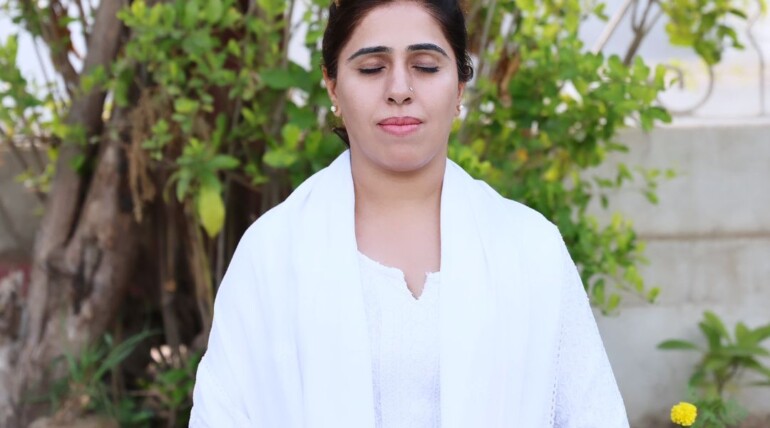Due to the competitiveness in today’s society, there is a lot of pressure on students to excel academically, engage in extra co-curricular activities as well as meet social requirements. The result? Stress, anxiety and burnout, all of which can have a negative impact on the individual as well as their academic achievements. However, a good and normal remedy to these problems is meditation. Meditation is highly effective for students because it helps them to pay attention, reduces the level of stress, and contributes to a more healthy life. Now, let us look at the various advantages of meditation to students and why it should not be a one-time thing.

Benefits of Meditation for Students
Stress Relief and Relaxation
It has been noted that stress is one of the most important conditions that can be helped by meditation. For students, stress could be a result of exams, deadlines, and peer pressure among others. Meditation is an opportunity to take a break and clean one’s head. Thus, the learners can employ breathing exercises and relaxation to help the nervous system to decrease the level of stress hormones such as cortisol. This basic exercise is very beneficial in maintaining composure of the mind and thus minimizing chances of such complications as for example sleeplessness or anxiety attacks. It will help the students to reduce the level of tension they experience when handling academics and they will be more confident.
Improved Focus and Concentration
Focus is very important in order for the students to perform well in their studies. It may be to listen attentively during a lecture or while studying for the exams, one needs to have a clear focus in order to retain and understand the information. Meditation, especially mindfulness meditation, is good in helping the mind focus on current events and thus increase attention span. Thus, through learning the aspect of mindfulness, the students are able to be more keen on their activities hence enhancing the performance in their respective classes. Research has it that students who practice meditation experience an improvement in their memory, problem-solving skills and information processing.
It is the state of one’s well-being emotionally and mentally or the overall mental health of an individual.
Scheduling of time between books, friends, and work can be stressful to students, and this affects their emotional well-being. Meditation is one of the ways through which positive emotions can be encouraged among the students since it enhances the student’s ability to regulate their own emotions. This way, the students will be able to control other feelings such as anger, frustration and even sad feelings through the practice of meditation every day. This clarity in the mind enables students to overcome emotional hurdles with a lot of composure and logic. It also helps in enhancing self-acceptance and self-compassion thus enabling the students to handle failure and other related issues. A balanced emotion enables the students to have a positive attitude towards life and be successful in all aspects of their lives.
Boosting Creativity and Imagination
The creativity and innovative spirit is a common thing that is encouraged in students with regard to their academic work and even in their daily undertakings. The mind has to be free from all the clutter so that new ideas can have a chance of entering the mind through the door of meditation. This is because through visualization meditation, students are able to improve on their thinking ability, and be creative in their approach. It can be very useful in projects which are more of a creative nature or when the learners are in a state of a creative freeze. Practicing meditation on a daily basis also has the effect of reducing the clutter within the mind and create a place where new ideas can be created.
Improving Self-Control and Time-Organization
Time management and self-discipline are important aspects of success which every student should master. Since students are usually busy with different assignments, tests, and extracurricular activities, it is challenging to manage all of them. Meditation assists students to improve their self-discipline and control in their daily life since they learn to be conscious of themselves. It is getting to know students’ habits and patterns of thinking, so that they develop the ability to sort out tasks and avoid distractions. Meditation also assists in the prevention of procrastination since it teaches one to be keen and willing to work hard and finish tasks within the required time. Acquiring these skills is important in the current and future academic performance, personal and career advancement.
Building a Healthy Lifestyle
Meditation is not only for the mind, but also for the body; it has physical benefits as well. It has also been proven that through meditation one is able to reduce his or her blood pressure, have a better sleep, and even enhance his or her immune system. To students especially, it is important to take good care of their health in preparation for both studies and other activities. Meditation helps the students develop a sense of responsibility for their body hence being aware of their need to exercise, take healthy foods and sleep well. Students should take time to practice meditation so that they can be able to form a healthy lifestyle and thus enable the students to be energetic.
Developing a Positive Mindset
Having a positive attitude can greatly determine the success rate of a student and his or her development. Meditation can help to create a positive attitude since it makes people be aware of themselves and their thoughts. Students can also take time to reflect and meditate so as to be able to analyze and change negative attitudes to constructive and optimistic attitudes. This shift in mindset can enable students to learn and face their challenges with a more positive outlook thus enabling them to overcome all the hurdles in their way. Meditation has an effect that makes students more grateful and mindful hence making them happier with what they have.
Social Connections and Compassion
Meditation not only results in the enhancement of the individual’s health but also enhances the quality of relationships between people. For instance, compassion meditation assists learners to develop positive attitudes towards fellow students. When students are in school they are in a society where competition and peer pressure are common, meditation helps the students to develop friendship and good relationships. When students are taught to be more compassionate and empathetic they can manage conflict and issues in relationships better. Such an aspect of relatedness and emotional understanding can do a lot of good to a student’s social life as well as to the overall positive change of the school climate.
Conclusion
In fact, the advantages of meditation for students are numerous and cover almost all the spheres of life. Meditation is the solution to most of the problems that students go through today, right from stress and poor concentration, poor emotions, and even poor creativity. Meditation practice should be incorporated into students’ daily schedule so that they can get better grades, improve their interpersonal relationships, and lead a healthier life. Students should be taught to be mindful and be aware of themselves so that they can be emotionally strong to face all the challenges in their life.
The practice of meditation is not simply a way of managing stress, it is a process that prepares students for success by giving them the right mental, emotional and physical tools. For concentration, stress, or relationship purposes, there are many benefits which meditation provides which can change the lives of the students. The practice of meditation that will be implemented and encouraged at the college level will not only help students to fit into the academic environment but will also equip the learners with tools to succeed in their personal and professional lives in the future.
Even small addition of 5-10 minutes of meditation to a student’s day can bring about positive changes in his or her well-being and effectiveness. I believe it is a practice which, if incorporated, can change students’ lives by giving them a clear and peaceful understanding to go through their academic endeavors.




